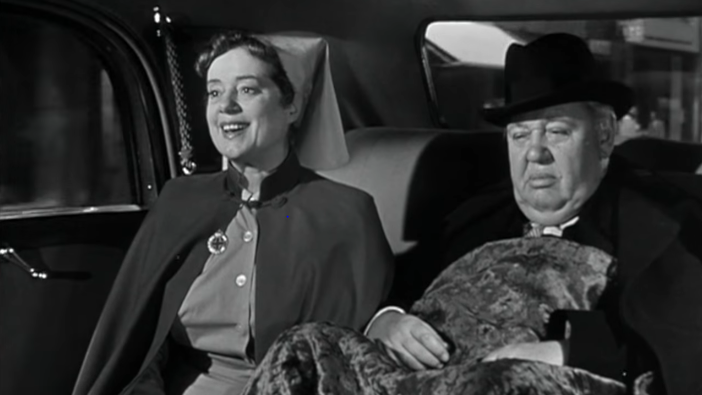
Agatha Christie’s popular blend of mysterious murders, eccentric characters, droll humor, and surprise endings have translated smoothly into many entertaining movies, including some all time-classics. In that glittering club along with another of my recommendation (And Then There Were None) is Billy Wilder’s 1957 gem Witness for the Prosecution.
Plot: While recovering from a heart attack, the brilliant and caustic Sir Wilfrid Robarts (Charles Laughton) is presented a murder case that tempts him back to the Old Bailey, despite the risks to his health. A charming ne’er do well named Leonard Vole (Tyrone Power) stands accused of murdering an older, well-heeled, widow named Emily Jane French (Norma Varden), who had fallen under his spell. Vole’s glamorous, enigmatic, German wife (Marlene Dietrich) at first seems willing and able to provide an alibi…but the audience shares Sir Wilfrid’s suspicion that the case will be nowhere near that simple.
Christie was comfortable with liberal adaptations of her work. Indeed, she herself changed the ending of her story Traitor’s Hands when turning into a play called Witness for the Prosecution. And she countenanced a number of further changes in the film version, as scripted by Wilder, Larry Marcus, and Harry Kurnitz. Their most brilliant innovations were enlarging the part of Sir Wilfred to give Laughton a showcase role and inventing outright the character of Miss Plimsoll, his long suffering nurse. Casting Laughton’s real-life wife, that shamelessly funny ham Elsa Lanchester, as Miss Plimsoll was another stroke of genius. The first quarter of the film could have stood on its feet just as a comedy, as Plimsoll mothers and badgers Sir Wilfrid to follow his health regime and he schemes and wheedles to obtain his treasured cigars and brandy.

But of course it’s not primarily a comedy, but a murder mystery and courtroom drama. It’s very strong on those terms, with articulate jousting in the courtroom and engrossing plot twists outside of it. The ending, which I will not ruin (and the post-credits ask audiences to abide by the same silence), is a bit contrived but still satisfying.
The smaller roles are also very well essayed, include Una O’Connor as the hilariously crotchety maid of the victim and Henry Daniell, whom I loved in multiple Rathbone-Bruce Sherlock Holmes films, as another lawyer. But even in this strong cast, Laughton towers over them all with one of signature performances of his stellar career. His Sir Wilfrid is a complete character: insufferable at times, dazzling at others, and always, at the core, honorable.
Tyrone Power was an intriguing choice as the accused. Entering middle age (and tragically, to die of a heart attack after this picture was released) , his handsomeness is still visible, but at a less godlike level that in the 1940s. He looks, appropriately, like a chancer who knows his looks will fade soon but are still impressive enough to spark fantasies in a lonely older woman. Marlene is as beguiling as ever, and it doesn’t really bother us that despite her penury, she wears a series of smashing outfits designed by Edith Head.

The movie is of course also another triumph for Billy Wilder, and one that at moments echoes some of his other movies. Leonard’s relationship with Mrs. French brings to mind Sunset Boulevard and a scene in post-war Germany with Dietrich and Power recalls A Foreign Affair. Resonant grace notes for fans of the legendary director.
